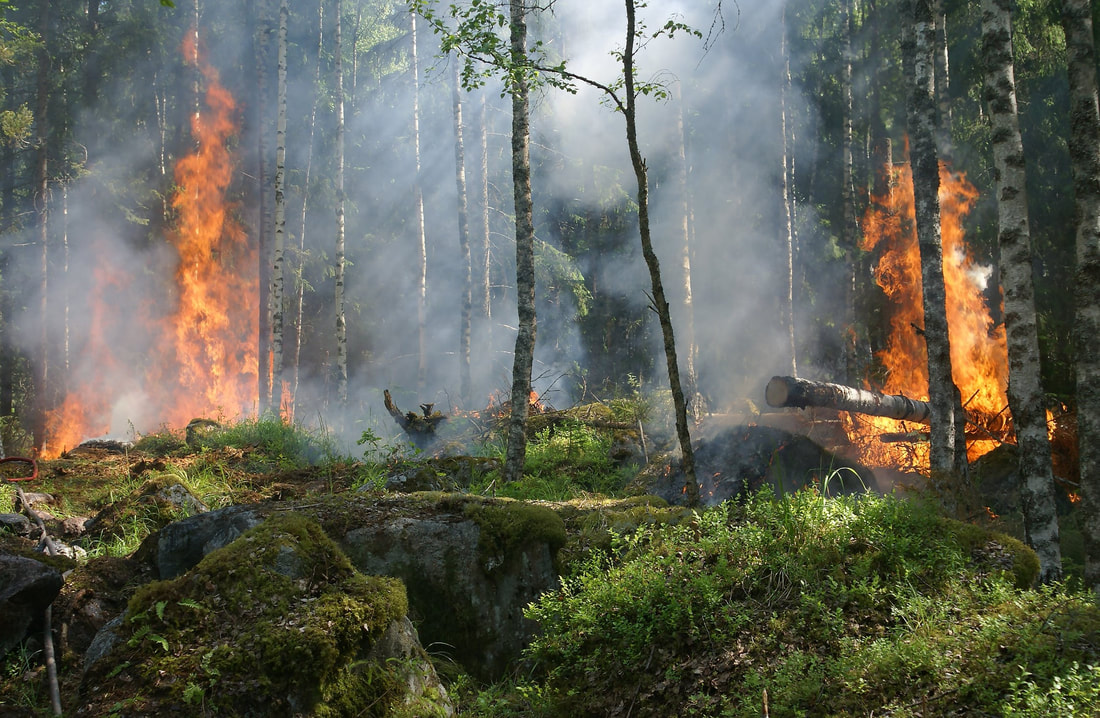|
For me and many others in Australia, the transition from Christmas to the New Year has been incredibly stressful and disconnected from what we would usually think is a wonderful holiday period. We’ve finished 2019 and started 2020 having experienced some of the most horrendous bush fire conditions anyone has ever seen and at such a large scale.
Whilst some of the most catastrophic days have past, there remains a clear and present danger in terms of fires. However, with any risk, it’s in the assessment and active review of that risk that we’re able to effectively manage those risks. In recent days, I’ve heard of a number of schools cancelling their entire outdoor education programs. I have absolutely no idea what idiotic thought process was involved in these decisions. In fact, it’s worse than that. If you have people running these programs who are willing to take them all out of the field on such a thin premise, then those people shouldn’t be allowed anywhere near an outdoor ed program, let alone a school, as it doesn’t demonstrate any level of reasonable thought nor leadership on what has been a devastating concern, yet at the same time, not an insurmountable risk. Being able to understand the difference between perceived risk and real risk is important for those running an outdoor ed program, or any school excursion or activity for that matter. Certainly, parent perception is a risk, but it’s not a dangerous risk, it’s more of an unpleasant risk in the grand scheme of things. However, if you clearly explain decisions based upon real evidence and have professional, well-trained and experienced risk managers running your programs, then this is not a real risk at all. On the surface, it would appear that schools have cancelled programs because of this perceived risk and perceived parental opinion, rather than any real risk. The real risk in all of this, is that it reinforces the fear that many students might have about the outdoors and it’s much easier just to give up than to actually manage the risks at hand. As camp is the only thing many students remember about their schooling, sorry to say kids, for some of you 2020 won’t be very memorable. Whilst we should never underestimate the dangers which come with bushfires, it’s important that as an industry and educators, we don’t waste an opportunity for students to learn. With all outdoor education in Australia, the level of real risk is quite low and when it’s managed and run by experienced professionals, the prevalence of injuries and significant events is also very, very low. Why then would a school ignore the industry’s high standards and simply cancel everything? Are their risk management systems and staff so inadequate that they’re incapable of managing an environmental risk? Or have they taken advice from idiots who have never worked in the field before? Even though we can’t be blasé about safety nor the potential real risks involved with bushfires in the summer months, we also can’t afford to be so risk averse that it damages a student’s experience and builds fear into them about the outdoors and the natural environment. Throughout my career in outdoor education and risk management, we’ve had to pull the pin on a number of programs because of a change in conditions or circumstances and you could see the elevation of the level of risk heading to the point of an unacceptable risk. Therefore, it was time to adapt to the circumstances and change what we were doing. However, every time we did this, it was based upon real risk management and operational thresholds that have not changed the way in which we would, nor should view the current situation in Australia. Our risk management systems are progressive and leverage all of the available information, from public sourced services, news reports and real-time information on the ground. Basing decisions on good risk management practices is always critical to the success of your programs, no matter what. These fire events have not changed that in any way, shape or form and the core principles of good risk and program management remain the same. The reason why we manage risk in a professional and systematic way is so that we can make well-informed decisions based upon current circumstances and conditions and despite the impact of major social and environmental events, we can continue to operate in a safe and professional manner. The reverse is also true, when people don’t understand how to effectively manage risk, they make ill-informed and rash decisions which either result in serious injuries or ridiculous decisions such as cancelling everything because those responsible for these programs don’t have the skills, knowledge or confidence to pro-actively understand and manage the risks involved. Just last year several people were injured in a pre-Christmas shopping centre crush as an ill-conceived giveaway promotion went horribly wrong! Many people also die on our roads travelling at this time of the year. Do we cancel Christmas? No that would be stupid… and so is this.
0 Comments
Your comment will be posted after it is approved.
Leave a Reply. |
Categories
All
Archives
April 2021
|

 RSS Feed
RSS Feed